COVID-19 is changing how women are giving birth: Here's how you can support a new mom during quarantine
Looking for more of the best deals, latest celebrity news and hottest trends? Sign up for Yahoo Lifestyle Canada’s newsletter!
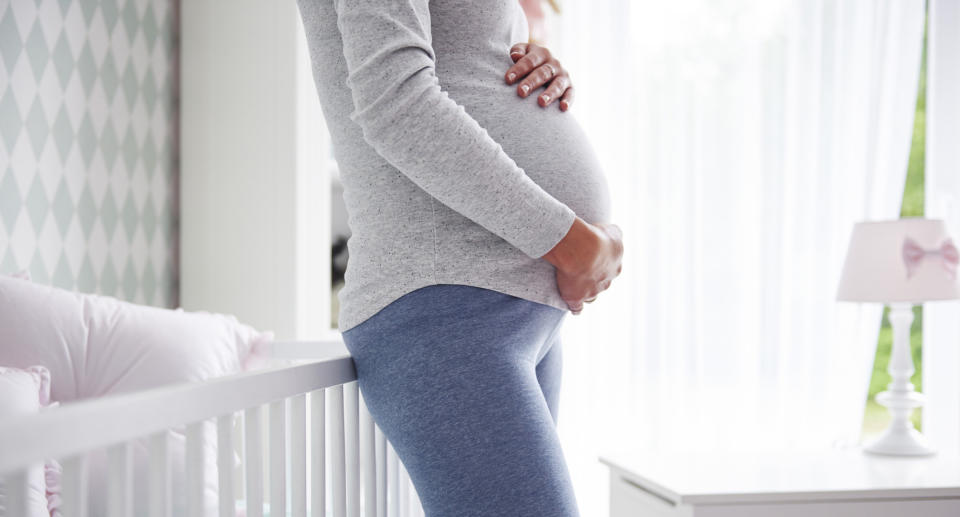
For many people the COVID-19 pandemic has put life on pause, indefinitely. From school closures impacting childcare for essential workers to business shut downs leaving hundreds of thousands of Canadians in need of unemployment services, each of our lives have been impacted by the novel coronavirus to varying degrees. And yet, we have all been called upon to do the same thing: stay home.
Each day in isolation, I’ve received messages and emails from friends and family announcing that a birthday, shower or wedding have been cancelled or postponed. Despite knowing that stopping the spread of the virus is of the utmost importance, I have caught glimpses into the private disappointment from loved ones as they reconcile their expectations with their new reality. While vendors can be rebooked and deposits can be returned, there are some things, like the birth of a baby, that can’t be rescheduled.
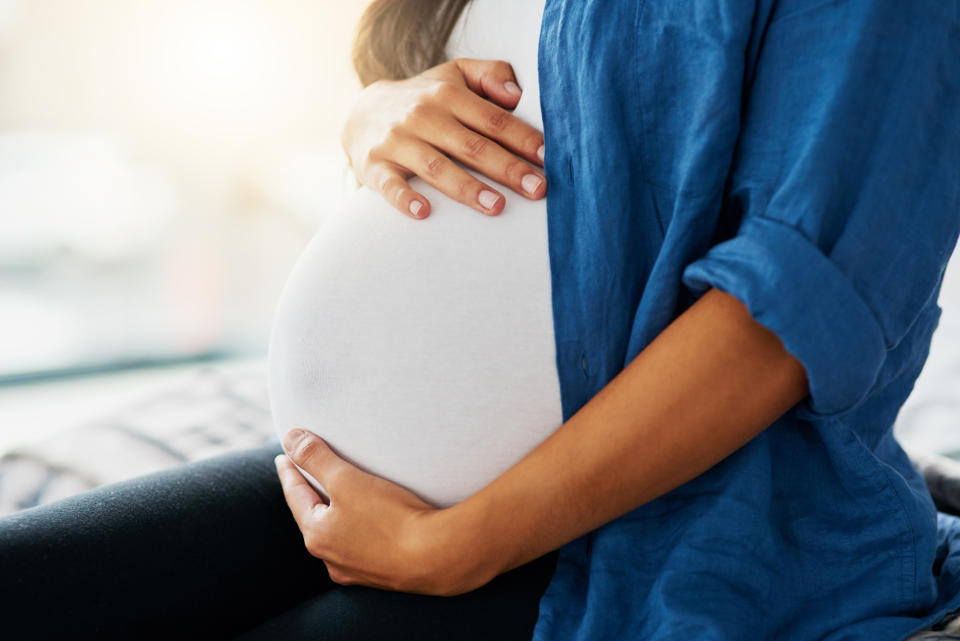
The COVID-19 pandemic has compounded feelings of vulnerability and uncertainty for pregnant women. Along with the anxiety of giving birth is the added risk of contracting the virus while in hospital and the fear of isolation post-delivery. As the old saying goes, it takes a village to raise a child. But what happens when the entire village is in quarantine?
ALSO SEE: 'This is a war': 2 nurses on opposite coasts battle the coronavirus pandemic
Courtney and her husband Stuart are counting down the days until the arrival of their first child. At 37 weeks, Courtney has been putting the final touches on the baby’s nursery, cautiously opening and sanitizing packages and gifts that arrive by mail.
Two weeks ago, Courtney was forced to cancel her baby shower and has been in strict isolation due to the fact that she has lupus, an autoimmune disorder that not only makes her a high risk pregnancy but also makes her high-risk for COVID-19. Although her first priority is keeping herself, her baby and her family safe, Courtney admits it was difficult to cancel the shower.

“We had been trying for this baby for almost four years and wanted to celebrate with family and friends,” she explained. “I understood the severity of the virus and knew we needed to cancel to keep everyone healthy, but it was a sad time for me personally - I’ve looked forward to this day for years and years.”
Like Courtney, Eszter has been self-isolating during the final weeks of her pregnancy. After six years of working as an ER nurse, Eszter was put on leave due to risk of high exposure at the hospital where she works. She had been looking forward to having time off before she delivers since she has struggled with persistent back and pelvic issues, however Due to the COVID-19 shutdown, she no longer has access to physiotherapy and massage therapy.
ALSO SEE: Hailey Bieber says self-isolating in Canada has actually made her 'happier'
Eszter, now 39 weeks pregnant, is concerned about the restrictions regarding the number of people allowed in the delivery room.
“I was looking forward to my sister being in the delivery room and sharing this experience with me. She was also going to return the favour and be our ‘photographer’ as I had also taken photos during her two births,” she said. “I always imagined my parents, my mother-in-law and sister-in-law coming to the hospital to meet our baby as well as my two brothers. They’re no longer allowed to do that.”
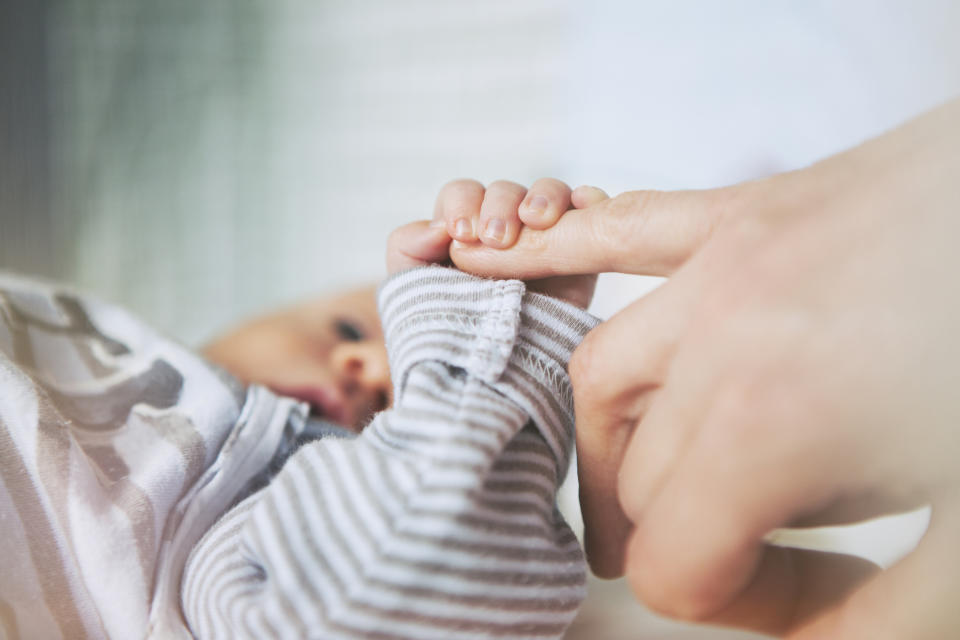
Courtney echoed the same concerns. The hospital where she is set to give birth has issued a strict no-visitor policy, and is only allowing one support partner or family member to be present.
According to the hospital’s website, the support partner must remain in hospital room with the expectant patient at all times. The hospital has advised that all patients and their support partner pack enough clothes, toiletries, electronics and non-perishable food items to last the duration of their hospital stay, which is typically one to three days depending on delivery. No visitors or other family members will be permitted to visit prior to or post-delivery.
The restrictions regarding support partners as well as the continued threat of COVID-19 has prompted many expectant women to seek alternative birthing arrangements. In recent weeks, both the Midwives Association of British Columbia and the Association of Ontario Midwives (AOM) report an increase in home-birth or home-style birth at midwives birthing centres.
ALSO SEE: 'She was in absolute pain': Toddler recovering after COVID-19 diagnosis
Elizabeth Brandeis, president of the AOM, told Yahoo Canada that many women are feeling the added stress of anticipating labour and delivery without a large support team. While some women may opt for a home birth to avoid going to the hospital during COVID-19, it’s not always a suitable or safe option for others.
The primary concern, Brandeis said, is ensuring that women are provided the same level of support despite the new restrictions. The AOM has incorporated virtual check-ups and check-ins with clients to limit the risk of virus transmission.
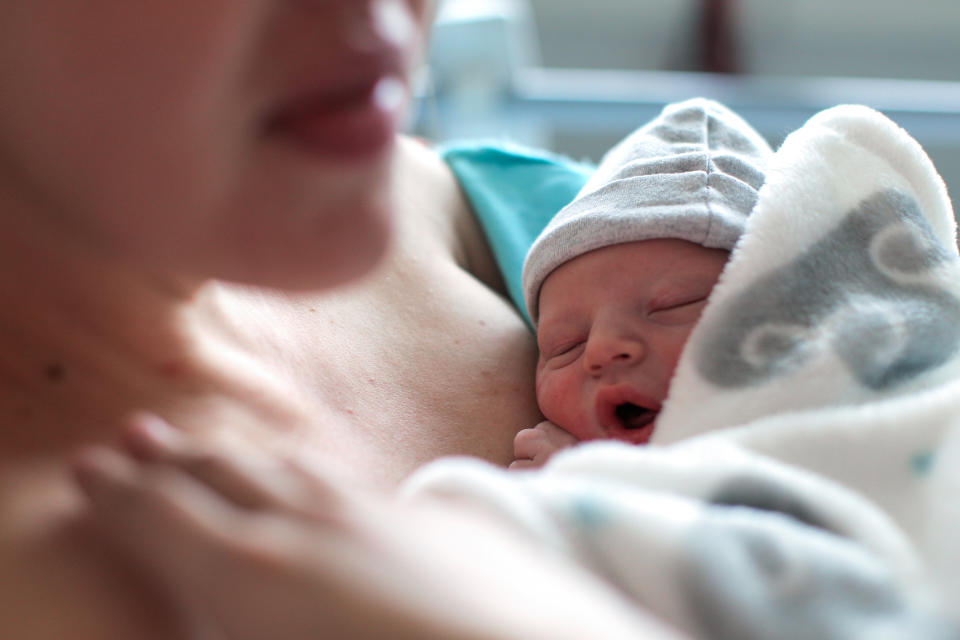
“It's not the same, but it does allow us to be able to have that visual connection with our clients to be able to help ease their stress,” she explained. “Even giving virtual breastfeeding support is something that we're able to do with these new formats, but nothing can replace physical hands on support.”
Despite the uncertain times, Brandeis said practicing social distancing and remaining largely alone with your newborn has serious benefits for the newly formed family unit.
ALSO SEE: Three easy ways to make your own non-medical face mask at home
“The advice that we give to new parents, we don’t use the word ‘isolate’ but we encourage them to minimize the amount of people who are coming and wanting to hold the baby can sometimes interfere with that early bonding period,” she explained.
Brandeis said that delivery during COVID-19 is not unlike when she began her work as a midwife during the SARS epidemic in 2003. While there are restrictions that have forced women to unexpectedly alter their plans, the advances in technology and forms of communicating put women and new parents at an advantage.
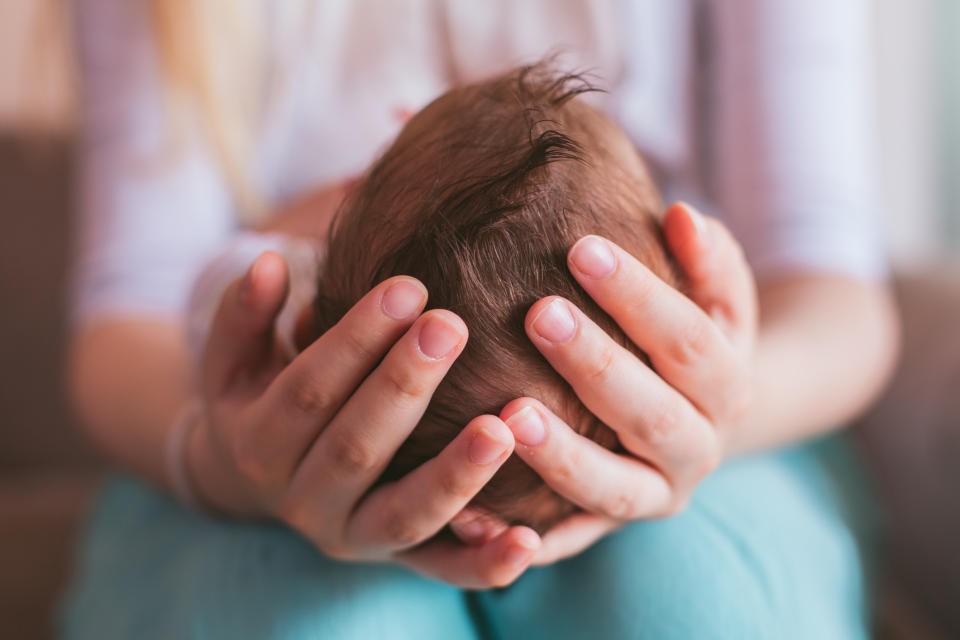
Although family and friends won’t be able to physically visit or help with the newborn, it’s important for the support system to move online. Video conferencing, ordering meals for delivery to the family and visiting via FaceTime are all important to help new parents feel connected and supported. The postpartum period is difficult enough for new mothers; despite the social distancing restrictions, Brandeis said there other ways family can help out.
“I think one of the really heartening parts of, of this crisis has been to see the kind of out-pouring from people who want to help them, who want to contribute to those affected,” Brandeis said. “For new parents, it might be dropping off groceries, or bringing them a home cooked meal. It could be picking up a load of laundry from the porch and bringing it back to them. It may not be the physical connection of a hug or touch but it’s something to break the feeling of isolation.”
Let us know what you think by commenting below and tweeting @YahooStyleCA! Follow us on Twitter and Instagram and sign up for our newsletter.



